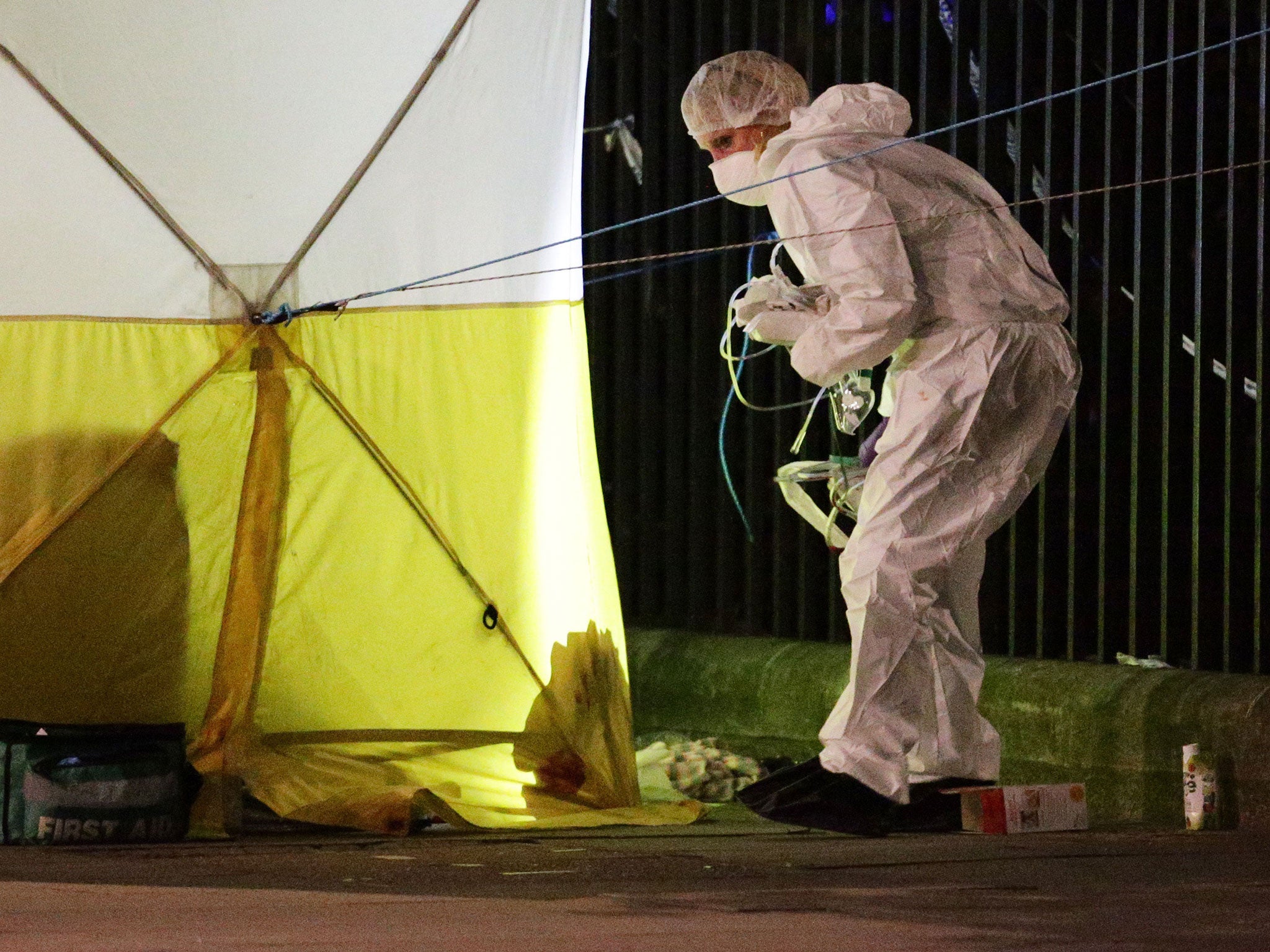After the Russell Square stabbing, we need to talk about vulnerable mentally ill people and Isis propaganda
Understanding the link between mental health problems and acts of violence does not excuse those acts of violence but makes us better able to prevent such atrocities taking place

At around 10.30pm on Wednesday 3 August, a man stabbed several people in Russell Square in central London. One woman is dead and five more injured. The facts of the case are still emerging, but police have said that they believe “mental health is a significant factor”.
Given recent events in France and Germany and the heightened risk of terrorist attacks in Europe, counter-terrorism officers are investigating too. As the dust settles on this horrible crime, at least some of the discussion needs to focus on the dire state of mental health services in the UK.
In the aftermath of any attack, the suggestion that mental health problems could have played a role often prompts anger (though in this case, it has been unequivocally stated by police, and that’s why reports made mention of it). Some feel it is insulting to suggest that a perpetrator somehow lacks agency and that the Government is to blame. Of course, the reality is far more nuanced than that. For a start, suffering from a mental illness does not also mean that it is impossible for someone to have a link to a terrorist organisation or be inspired by terrorist ideology.
On Monday, Muhiddin Mire was jailed for life for stabbing someone at Leytonstone tube station in December 2015. He shouted, “This is for my Syrian brothers” as he attacked passers-by with a knife, and the incident was treated as an act of terror. Mire had downloaded Isis propaganda on his phone, which apparently coincided with a significant deterioration in his mental health. The victim, doctors who treated him, and numerous security officials involved with the case have since said that the attack was more to do with Mire’s acute mental health problems than with terrorist ideology.
Do the mental health problems excuse the attack? Of course not. Could it have been prevented if he had been in treatment? Perhaps.
Police are well aware of the potential overlap. In May, Chief Constable Simon Cole, who is in charge of the Prevent programme, told the Guardian: “There would appear to be, from the work we have been doing, a link to people who are vulnerable around mental health.” Isis takes advantage of vulnerable people; this much we know.
Understanding the link between mental health problems and acts of violence, where those links exist, does not excuse those acts of violence. It adds to our understanding and makes us better able to protect against such acts. There are some cases in which preventative care for someone in a mental health crisis could prevent them committing an act of violence at all.
When David Cameron came to power in 2010, he pledged to put mental wellbeing at the centre of his Government. Yet a report by his own taskforce earlier this year condemned years of under-investment, laying a significant portion of the blame on the current Government. A draft of the report leaked in February said: “Many people struggle to get the right help at the right time, and evidence-based care is underfunded. The human cost is unacceptable and the financial cost is unaffordable.”
A review in late 2014 found that despite Government trumpeting the fact that overall spending on mental health services had increased, four in 10 local trusts faced reduced budgets. Just 14 per cent of patients reported getting appropriate care in a crisis. Many patients are routinely sent home when they need in-patient care, due to a lack of beds, or sent far away from home.
Care in the community, a vital means of caring for patients outside of institutions, has been hugely affected by cuts to social care budgets. People are routinely waiting up to 30 weeks for an appointment with a community mental health team.
Finally, it is crucial to remember amid this discussion that the greatest threat posed by inadequate mental health services is not to the wider public, but to those who urgently need better care. Suicide rates are on the rise after years in decline and the Government taskforce suggested extra investment in services would save 400 lives a year.
As the police investigation into the terrible incident at Russell Square establishes the facts, it is important to remember the emphasis officers have placed on “mental health”, and to consider what steps could be taken to prevent a repetition.
Join our commenting forum
Join thought-provoking conversations, follow other Independent readers and see their replies
0Comments